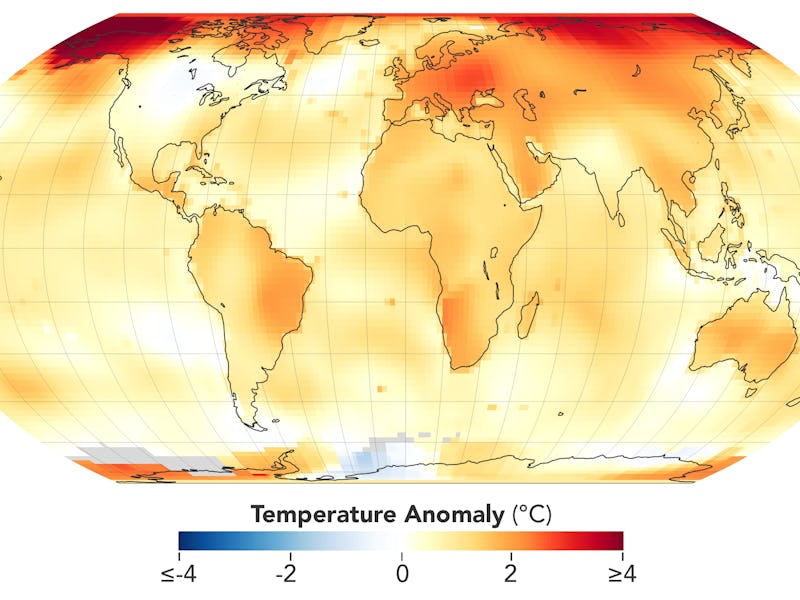NASA data reveals the truth about Covid-19's effect on climate change
"This is the warmest decade in the historical record without any question whatsoever."

New NASA satellite data reveal global warming continued unabated in 2020 — in fact, the year is tied with 2016 for the warmest year on record, according to the space agency.
Despite the Covid-19 pandemic forcing most people around the world to stay home, 2020 continues the trend in rising global temperatures, driven in major part by increases in greenhouse gas emissions, NASA experts said during a teleconference debuting the new data on Thursday.
The agency's data throws cold water earlier speculation about whether a decrease in air pollution levels seen in 2020 as the pandemic slowed human production, travel, and other activity that produces greenhouse gases could translate into measurable gains against global warming over time.
Lockdown might have put the brakes on humans, but the new data suggest the climate crisis suffered no such slowdown.
"When you add in all the things humans have done, almost all the trends over this period are attributable to human activity."
The average temperature on Earth in 2020 was 1.84 degrees Fahrenheit (1.02 degrees Celsius) warmer than the baseline average between the years 1951 to 1980, according to NASA. Every decade since the 1960’s has been warmer than the previous one.
Gavin Schmidt, director of NASA's Goddard Institute for Space Studies, had a bleak prediction for 2021, too.
"This is the warmest decade in the historical record without any question whatsoever," Shmidt said during the teleconference. "With these trends, and as the human impact on the climate increases, we have to expect that records will continue to be broken.”
Global temperatures data revealed that the year 2020 was the hottest year on record, tying with the year 2016.
NASA and the National Oceanic and Atmospheric Administration (NOAA) each conduct their separate analysis of global temperatures. Curiously, NASA's analysis suggests 2020 is absolutely the warmest year on record, but by bringing both datasets together, the agencies say 2020 can be considered on a par with 2016 for the warmest year.
But even if 2020 was not the warmest year on record, it is undisputed that each of the past seven years have been among the warmest ever recorded, revealing an alarming trend of rising temperatures. Earth's average temperature has risen more than 2 degrees Fahrenheit since the late 19th century.
This upward trend is mainly driven by human activity, which leads to increased emissions of carbon dioxide, and other greenhouse gases.
"We can say quite confidently that the trends that we see are not being overly affected by non-climatic issues," Schmidt said during the conference.
"When we look at the 20th century we can see very clearly what has been happening... we know that we’ve been increasing the amount of greenhouse gases," he added.
"When you add in all the things humans have done, almost all the trends over this period are attributable to human activity."
This trend in warming temperatures is wreaking havoc on the planet, leading to a rise in sea levels, more frequent heat waves, the melting of ice sheets and loss in animal and plant habitat.
The Covid-19 impact
Earlier this year, as the Covid-19 pandemic forced a decrease in human activity as many cities imposed a socially distanced lockdown on their residents, satellite data recorded a decrease in global air pollution levels over cities, and even entire continents. Some looked to these data and theorized 2020, for all its hardships, could be the year warming pulled back.
Satellite imagery collected by the European Space Agency (ESA) revealed a 45-50 percent drop in nitrogen dioxide levels across Europe in the early months of the pandemic. Meanwhile, data collected by NASA showed a 30 percent reduction in nitrogen dioxide across the Northeast United States.
Nitrogen dioxide is one of the most abundant greenhouse gas pollutants, generated by burning fossil fuels for electricity or transportation.
But the recent data reveal otherwise. Unfortunately, it is clear that the planet's trajectory towards increasing temperatures will not be halted by a few months shift in human activity.